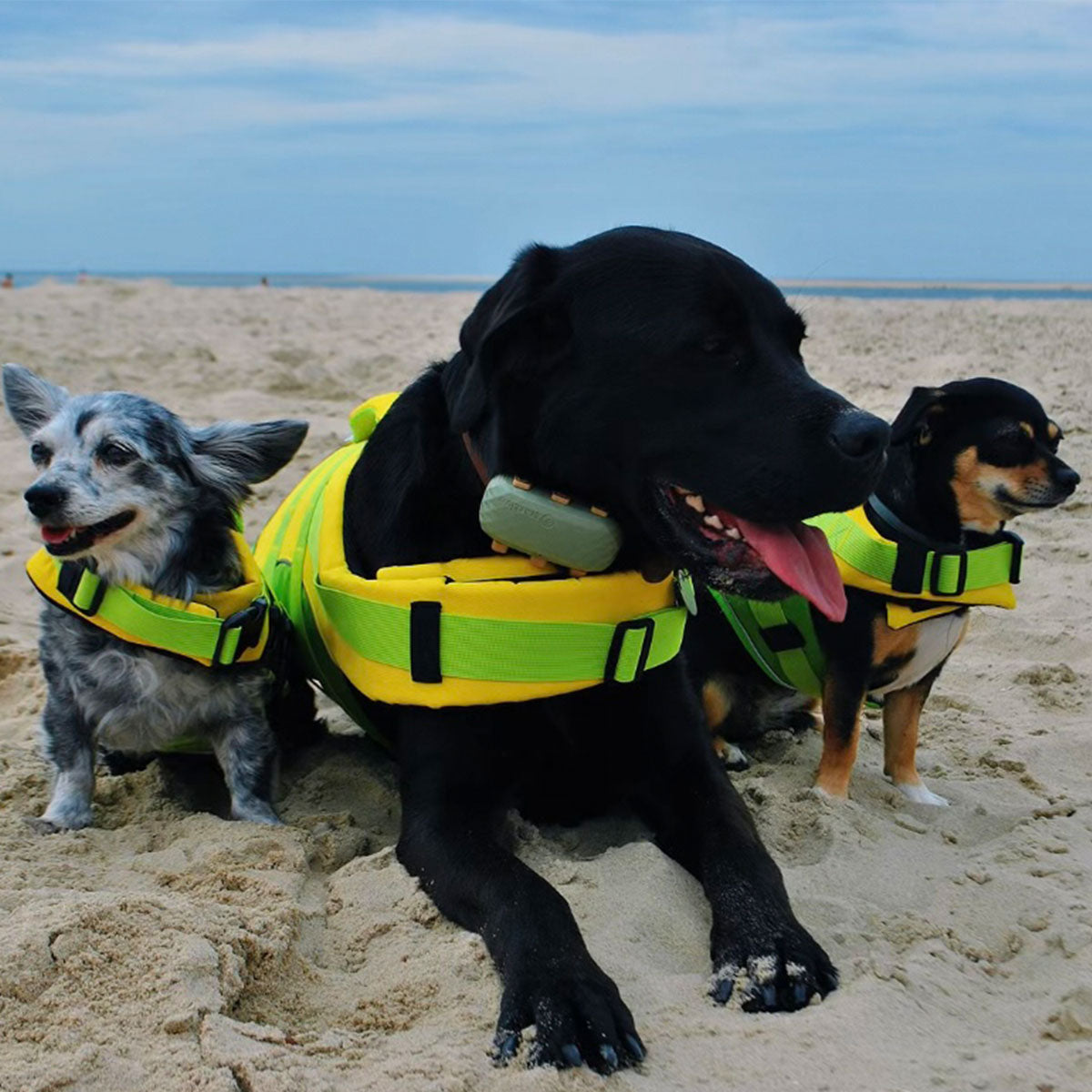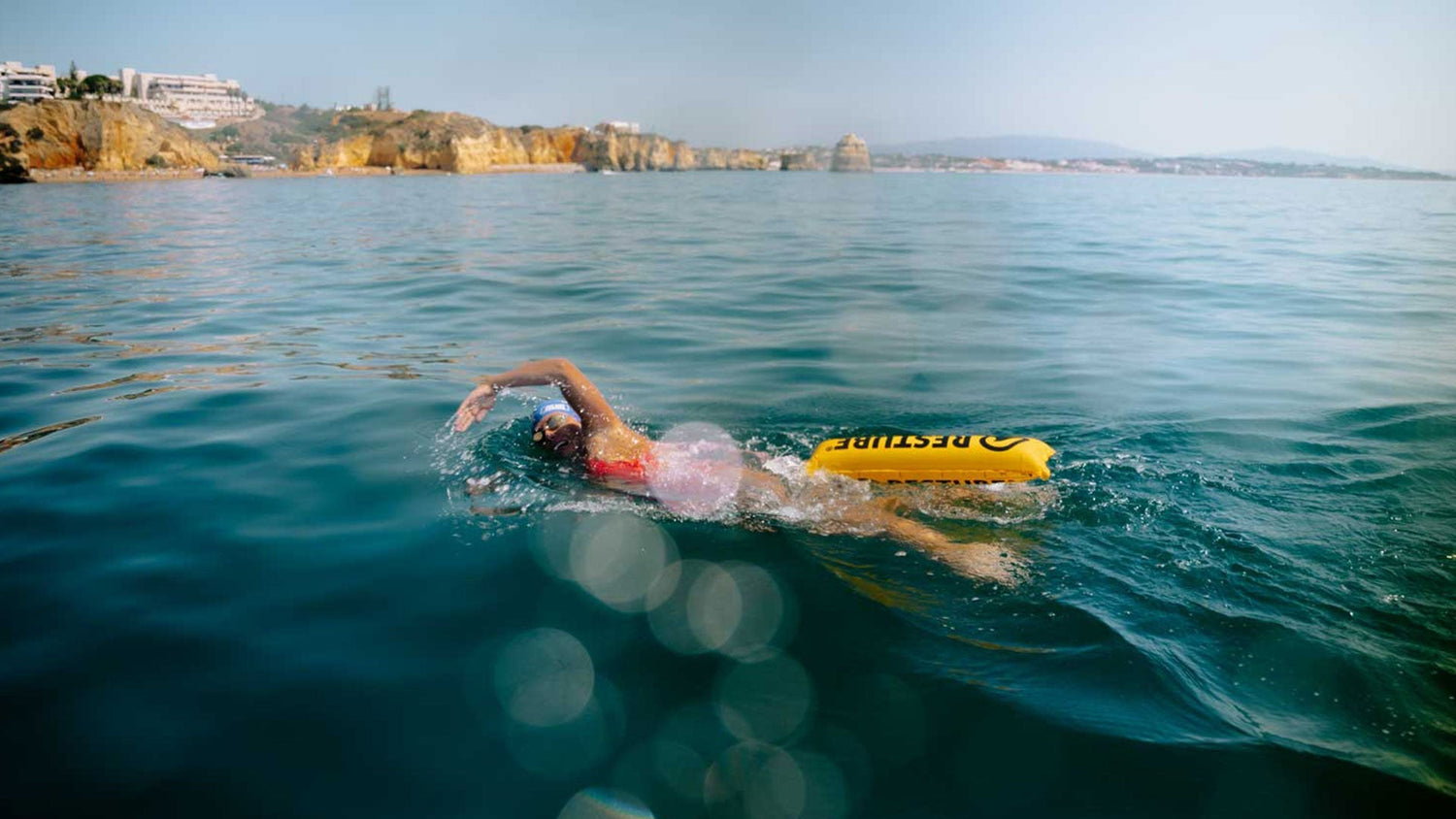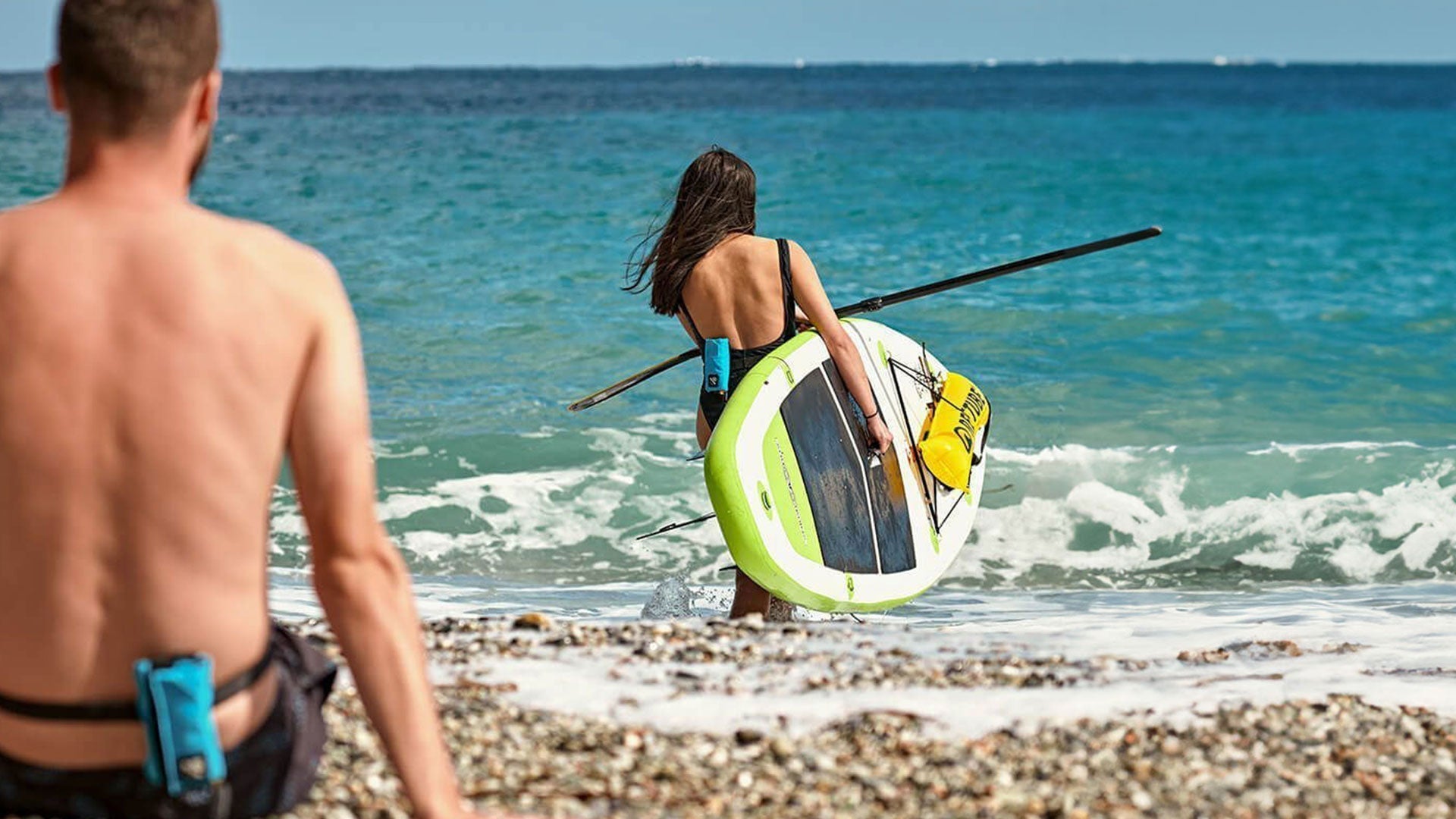Insignias de natación que capacitan - Siéntete más seguro, nada más libre
La capacidad de nadar significa seguridad, libertad y diversión sin preocupaciones en el agua. Pero, ¿cómo se puede aprender y mejorar la natación de forma estructurada? Aquí es donde entran en juego las insignias de natación alemanas, que van desde la insignia Caballito de Mar hasta la insignia Socorrista. Proporcionan una orientación clara tanto a niños como a adultos y motivan a las personas a mejorar continuamente sus habilidades de natación. En este post, conocerás todos los detalles importantes sobre el orden de las insignias de natación, sus requisitos y cómo RESTUBE puede ayudarte a conseguir tu próximo objetivo de forma segura.
¿Qué son las insignias de natación y por qué son importantes?
Las insignias de natación son pruebas oficiales de determinadas habilidades de natación y conocimientos de seguridad que están normalizadas en Alemania. Te ayudan a aprender a nadar sistemáticamente y a desarrollar gradualmente tus habilidades. Son especialmente motivadoras para los niños, ya que fomentan la mejora lúdica de la técnica y la resistencia. Sin embargo, estas insignias también pueden servir de valiosa confirmación y motivación para los adultos. Además del aspecto deportivo, aumentan significativamente tu seguridad general en el agua. RESTUBE puede desempeñar un papel crucial en este proceso, proporcionando a los nadadores de todos los niveles una seguridad adicional. Especialmente cuando se entrena en aguas abiertas o en distancias más largas, RESTUBE ofrece el apoyo necesario y ayuda tanto a los nadadores principiantes como a los avanzados en su camino hacia su próxima insignia de natación.
La Orden de las Insignias de Natación en Alemania
Para aprender a nadar de forma dirigida, hay una secuencia definida de insignias de natación. Cada insignia se basa en la anterior y exige cada vez más técnica, resistencia y habilidades de seguridad. Desde la primera insignia Seepferdchen hasta la exigente insignia Socorrista, hay criterios claros para cada etapa. Esta secuencia permite una mejora metódica y sostenible de la natación. Los que alcanzan el nivel más alto pueden incluso optar a la formación de socorrista.
Caballos de mar - El primer paso para nadar con seguridad
Para muchos niños, la insignia Caballito de Mar (también conocida como Seepferdchen) es el primer paso en el camino hacia la natación segura. Certifica habilidades básicas, como nadar una distancia corta y bucear en busca de un objeto. Para obtener esta insignia, los niños deben nadar al menos 25 metros sin detenerse. También deben recuperar un objeto desde el agua hasta los hombros y conocer las normas básicas de natación/baño. Esta insignia constituye la base de las siguientes insignias de natación y tranquiliza a los padres en cuanto a que su hijo puede moverse libremente en el agua. Sin embargo, tener la insignia Seepferdchen no significa que el niño sea un nadador completamente experto. Por tanto, la práctica continua es esencial.
Insignia Alemana de Natación en Bronce - El Primer Gran Hito
La Insignia de Natación de Bronce, también llamada "Freischwimmer", amplía las habilidades fundamentales de natación y mejora la resistencia. Para obtener esta insignia, hay que nadar al menos 200 metros en 15 minutos o menos. Además, se realiza una prueba de zambullida en busca de un objeto en al menos dos metros de agua. Los saltos al agua y los conocimientos teóricos sobre las normas de baño también forman parte del examen. Obtener esta insignia demuestra que ya puedes moverte con confianza en el agua. Pero, de nuevo, la práctica regular es clave para una seguridad duradera. Los entornos de aguas abiertas, en particular, pueden plantear retos diferentes a los de una piscina.
Insignia Alemana de Natación en Plata - Mayor Seguridad en el Agua
Con la Insignia de Plata de Natación, se desarrollan más las técnicas de natación y los aspectos de seguridad. Los requisitos incluyen nadar 400 metros en un máximo de 25 minutos. El programa también incluye inmersiones más avanzadas en aguas más profundas para recuperar varios objetos. Una parte clave de la prueba consiste en saltar desde una altura de al menos tres metros. Además, los participantes deben demostrar que conocen las medidas de primeros auxilios relacionadas con el agua. Estos requisitos más exigentes promueven un comportamiento seguro en una amplia variedad de entornos acuáticos y sirven como excelente preparación para tareas de natación y rescate más exigentes.
Insignia Alemana de Natación en Oro - La Clase Magistral de Natación
La Insignia de Natación de Oro es el nivel más alto entre las insignias de natación recreativa en Alemania. En ella, hay que nadar 1.000 metros en 24 minutos, lo que requiere una excelente resistencia. Además, te pondrán a prueba en varias inmersiones y saltos desde diferentes alturas. Múltiples ejercicios de buceo te preparan para posibles situaciones de emergencia. La parte teórica incluye el conocimiento de las normas de baño y de autorrescate. Quien posea esta insignia es un nadador muy competente y puede manejarse por sí mismo en casi cualquier masa de agua. También es una base sólida para el curso de Socorrista.
Insignia de Socorrista - Formación especializada en salvamento acuático
La Insignia de Socorrista está dirigida a nadadores avanzados que quieran garantizar la seguridad de los demás. Abarca técnicas de rescate especializadas para ayudar a las personas en situaciones peligrosas que puedan producirse en el agua. Las prácticas incluyen un mayor rendimiento en natación y buceo, así como técnicas específicas de agarre y transporte en rescate. También forma parte de la formación un curso completo de primeros auxilios. Esta insignia la utilizan a menudo socorristas profesionales, auxiliares de piscina y otros servicios de salvamento acuático. Proporciona una cualificación excelente para quien quiera trabajar profesionalmente en seguridad acuática o como socorrista voluntario. Sin embargo, esta insignia aporta grandes ventajas para la vida cotidiana, ya que conocer las técnicas de salvamento puede salvar vidas en muchas situaciones diferentes.
Insignia de la calavera: ¿mito o realidad?
A diferencia de las cuatro insignias descritas anteriormente, la denominada Insignia de la Calavera o "Totenkopf-Abzeichen" no es una insignia oficial de natación en Alemania. En su lugar, es un término informal para designar retos de natación especialmente extremos. Algunos clubes de natación o grupos privados pueden celebrar un examen interno con este nombre, pero no existe ninguna certificación de este tipo reconocida por el gobierno alemán. A menudo, el símbolo de la calavera representa logros extraordinarios de natación en condiciones difíciles. Algunos nadadores lo utilizan como motivación personal para superar sus límites. Aun así, es importante recordar que un entrenamiento sólido y la secuencia oficial de distintivos de natación constituyen la mejor base para nadar con seguridad. RESTUBE también puede proporcionar un apoyo de seguridad crucial en retos de natación extremos, ofreciendo una protección adicional.
¿Se han prohibido los distintivos de natación en Alemania?
En los últimos años, ha habido continuos debates sobre cambios en la enseñanza de la natación, pero no se han prohibido los distintivos de natación en sí. Más bien se han actualizado ciertos criterios de prueba para que sean más prácticos y estén más centrados en la seguridad. En concreto, la antigua insignia Freischwimmer se ha integrado en la insignia alemana de bronce de natación. Estos ajustes pretenden mejorar de forma sostenible las habilidades de natación y la seguridad en el agua. Sin embargo, es importante mantenerse informado sobre los nuevos requisitos para entrenar con eficacia. RESTUBE puede ser un complemento útil en este caso, ya que proporciona seguridad adicional durante el entrenamiento. De este modo, podrás cumplir las nuevas normas con mayor confianza y diversión.
¿Cómo puede ayudarte RESTUBE en tu camino hacia las Insignias de Natación?
RESTUBE ofrece una seguridad adicional a quienes se entrenan para obtener sus insignias de natación en aguas abiertas o en condiciones difíciles. Especialmente cuando te preparas para la insignia de Oro o de Socorrista, los productos RESTUBE pueden ser un activo valioso. Proporcionan seguridad adicional durante nados de larga distancia y en condiciones difíciles. También es especialmente útil para los adultos que están aprendiendo a nadar más tarde, ya que puede aumentar la confianza en sí mismos. En el entrenamiento en aguas abiertas, RESTUBE sirve como práctica solución de seguridad. Puedes centrarte en tu entrenamiento sin preocuparte por el agotamiento repentino o los calambres. RESTUBE te ayuda a alcanzar tus objetivos con la máxima seguridad.




